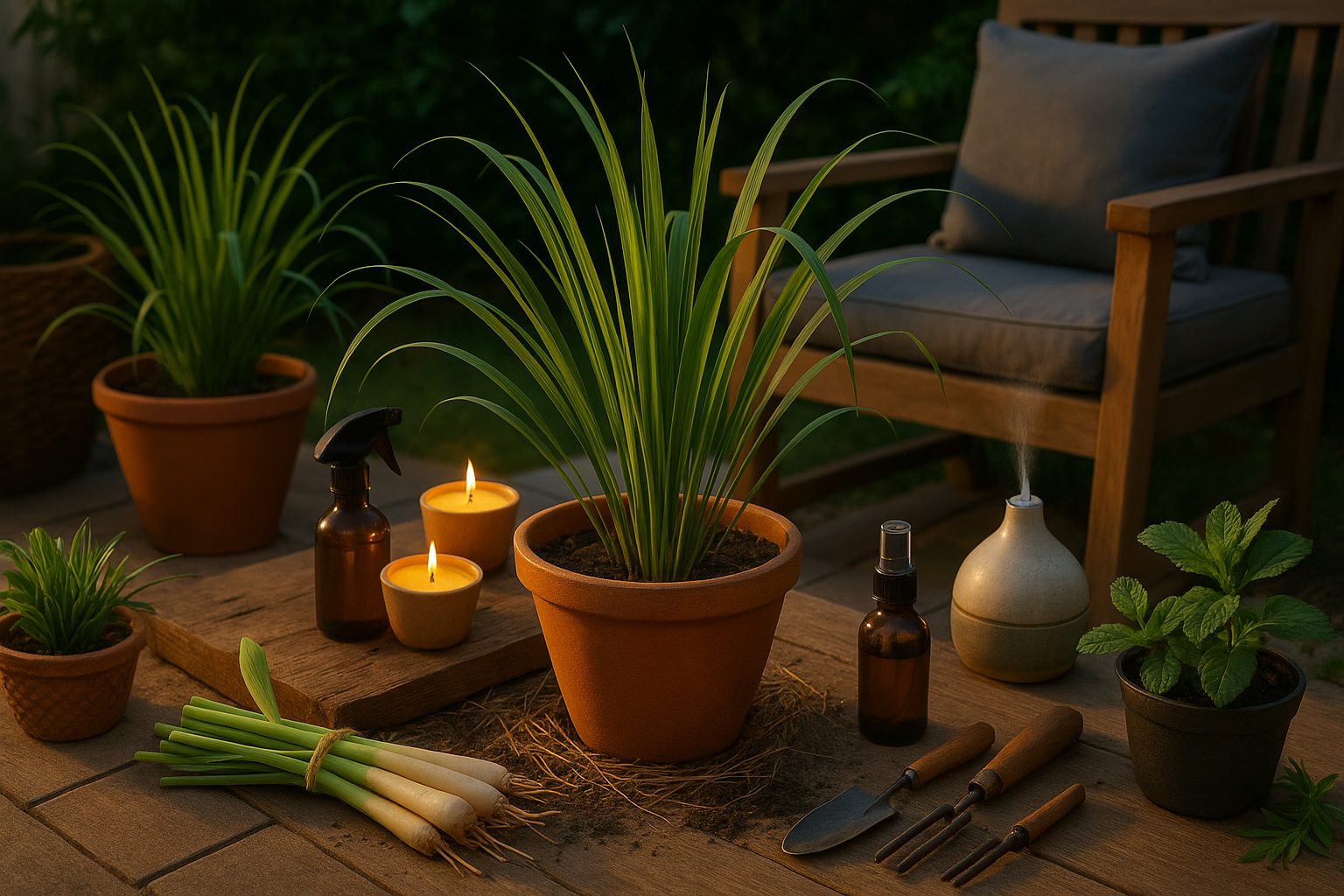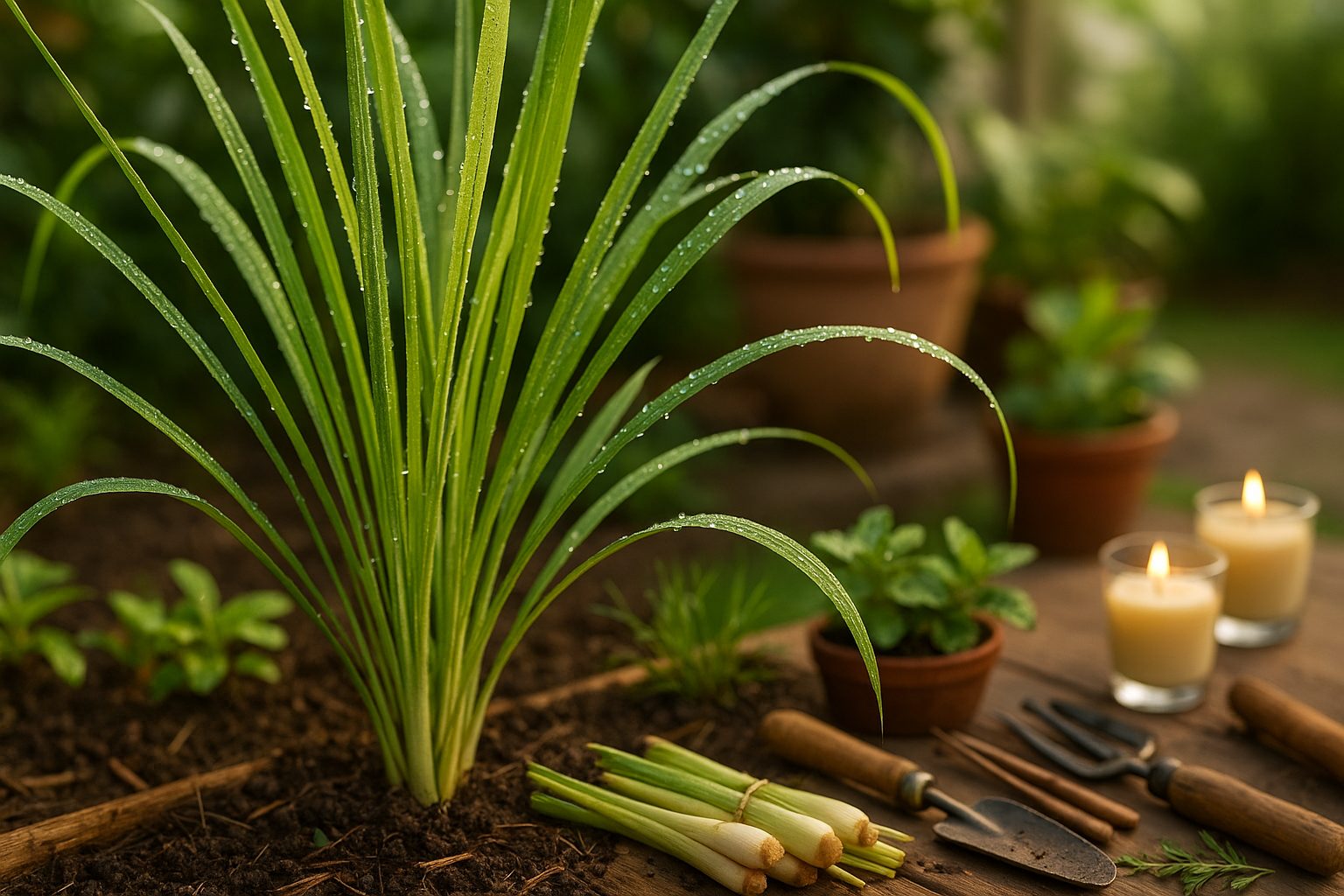Introduction to Lemongrass as a Mosquito Repellent
If you’re tired of spending summer evenings swatting away mosquitoes, you’re not alone. With concerns about the safety and effectiveness of chemical sprays, many people are seeking safer, more natural solutions—enter lemongrass mosquito repellent. Lemongrass, an aromatic plant known for its lemony scent and culinary uses, has a long tradition of being used to deter pesky insects. In fact, its oil contains citronella, a well-known ingredient found in many natural bug sprays and candles around the world. For generations, communities throughout Asia, Africa, and South America have planted lemongrass along windows or rubbed its fragrant stalks on their skin to keep mosquitoes at bay.
But does lemongrass really work as an effective mosquito deterrent, or is it just another gardening myth? With growing awareness about the environmental and health impacts of chemical repellents, interest in plant-based alternatives like lemongrass is at an all-time high. Whether you’re seeking something gentle for kids, have sensitive skin, or simply want a natural way to protect your outdoor gatherings, lemongrass remains one of the most popular choices. In this article, we’ll separate fact from fiction and explore whether lemongrass truly deserves its reputation as a natural mosquito fighter.
How Lemongrass Repels Mosquitoes

Lemongrass owes its mosquito-repelling power mainly to citral, a fragrant compound also found in citrus fruits, and to a lesser extent geraniol—both of which disrupt the insect’s ability to locate humans by interfering with their scent receptors. When you crush lemongrass leaves or use its essential oil, these compounds are released into the air, creating a scent barrier that mosquitoes find confusing and unpleasant.
Compared to other popular natural repellents, lemongrass is often mistaken for citronella, but they’re not the same plant—though both share similar citrusy aromas and contain related mosquito-deterring compounds. Citronella oil, which comes from a different grass species, contains more citronellal and is frequently used in candles and sprays.
Studies suggest citronella generally works well for short periods but wears off quickly; lemon eucalyptus, on the other hand, contains p-menthane-3,8-diol (PMD), which research shows can be as effective as low-concentration DEET over several hours.
Lemongrass oil’s repellent effects tend to be brief—usually under two hours—so for best results, it’s wise to reapply or pair it with other methods, like fans or netting, when outdoors for extended times.
And remember: while all three plants have value as natural repellents, lemongrass and citronella aren’t interchangeable, and no plant-based oil lasts as long as synthetic options like DEET.
For a backyard barbecue or an evening on the porch, try crushing a few fresh lemongrass stalks and placing them near seating areas for a gentle, pleasant way to help keep bugs at bay.
Ways to Use Lemongrass to Keep Mosquitoes Away

Lemongrass is a natural, versatile option for keeping mosquitoes at bay, and you can use it in several practical ways around your home and yard.
For outdoor protection, try planting lemongrass along borders or near patios—its strong citrus scent helps deter mosquitoes while doubling as a low-maintenance garden feature. If you’re spending time outside, crush fresh lemongrass stalks and rub them on exposed skin (after a quick patch test to check for irritation); this releases the plant’s aromatic oils for short-term protection.
Indoors, lemongrass essential oil is an easy go-to: add a few drops to a diffuser or mix with water and spray around window sills, doorways, and living spaces. You can even make your own DIY mosquito spray by combining lemongrass oil, witch hazel, and a carrier oil like coconut oil—just remember to shake well before each use.
Candles infused with lemongrass oil are safe for indoor or patio tables, offering double duty as fragrant ambiance and pest control—look for candles labeled specifically for indoor use and never leave them unattended. Lemongrass lotions can be applied to your skin as a natural repellent, but opt for products with clear, short ingredient lists and always spot-test first.
For the best results, combine methods: keep plants near entryways, use sprays on high-traffic areas, and light a candle when you’re relaxing in the evening. When used together, these approaches help create a mosquito-free environment that’s both safe and pleasantly scented.
Benefits and Limitations of Lemongrass Repellents
Lemongrass repellents are popular for their natural, eco-friendly appeal and safety, making them especially suitable for households with children, pets, or anyone sensitive to harsh chemicals. Unlike many synthetic alternatives, lemongrass products are non-toxic and biodegradable, so you can use them around your home and garden without worrying about harmful residue or negative environmental impacts.
For families seeking peace of mind, lemongrass sprays or diffusers offer a gentle way to deter mosquitoes and certain insects while maintaining a healthy space. However, it’s important to recognize the limitations: natural repellents like lemongrass typically have a shorter protection window, requiring more frequent reapplication—sometimes every couple of hours when outdoors.
In areas with heavy mosquito populations or where vector-borne illnesses are a concern, relying solely on lemongrass may not be enough. You might need to supplement with stronger products or seek professional pest control solutions. Ultimately, lemongrass repellents work best for mild prevention and short-term outdoor activities but are not always a complete substitute for synthetic options in high-risk situations.
Tips for Maximizing Lemongrass Effectiveness
To make the most of lemongrass’s mosquito-repelling power, try combining it with other natural defenses like citronella candles or essential oils. Plant lemongrass near patios, doorways, or windows where mosquitoes are most likely to enter. For even better results, place potted lemongrass near outdoor seating areas, or gently crush a few leaves to release more of its citronella fragrance into the air.
If you prefer using lemongrass essential oil, always dilute it with a carrier oil (such as coconut or almond oil) and perform a patch test first to avoid skin irritation or allergic reactions. Keep in mind that lemongrass’s effectiveness can be reduced on windy or rainy days since its scent disperses more quickly, so supplement with other methods during these times.
Consider companion planting as well—pairing lemongrass with plants like marigolds or basil can boost your garden’s overall mosquito-fighting ability. If you have pets or small children, be sure they don’t ingest lemongrass leaves or oils.
By combining these strategies, you can safely and effectively harness lemongrass’s natural benefits while creating a more comfortable outdoor environment.
Conclusion & Frequently Asked Questions
Lemongrass offers a simple, natural way to help reduce mosquitoes around your home, thanks to its fresh scent and citronella oil content. Many families wonder if it’s safe for children and pets—generally, when used as a plant or diluted oil, lemongrass poses little risk. However, pets with sensitive skin and young kids should avoid direct contact with strong oils.
While lemongrass can help deter several mosquito species, its effectiveness may vary and it doesn’t guarantee complete protection, especially in areas with high mosquito infestations. Most homemade sprays or diffusers provide about 1–2 hours of relief before you need to reapply.
For light mosquito problems, adding potted lemongrass or using its oil can make your patio more pleasant. If mosquitoes are out of control, don’t hesitate to consult a pest professional—lemongrass works best as part of a broader mosquito management plan. Give it a try and see how nature’s solution works for you!
